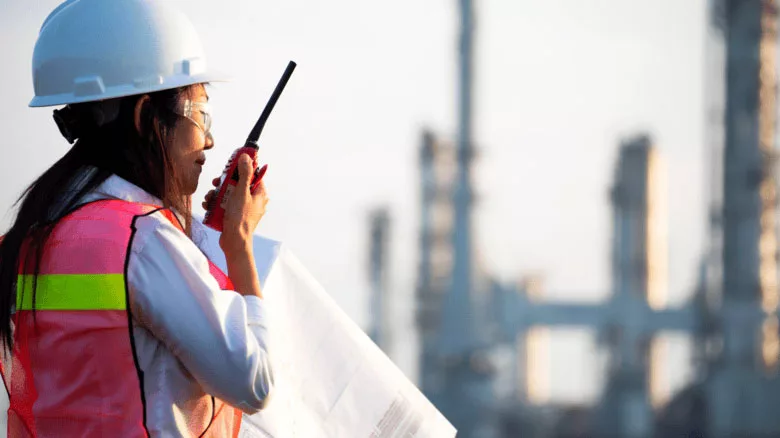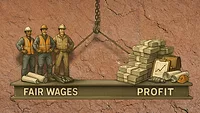Fostering a Safer and More Inclusive Environment in the Drilling Industry During Women in Construction Week
Promoting Respect, Accountability, and Positive Change for a Safer Workplace

Image Credit: Vichien Petchmai / Getty Images
With this week being women in construction week, I wanted to take a moment to talk about a difficult topic: harassment. There is a very fine line between jokes and harassment. Trust me, I love a good joke and can handle a few comments my way, but when my intuition sets in or I feel my stomach drop, that's when I know it’s gone too far and it’s a form of harassment.
The drilling industry is a place like no other. It’s a space where individuals are thrown together on sites for hours, days, weeks, months, and sometimes even years! It also means it can be difficult working with people for so many hours before disagreements begin. HR behind a drill rig? What is that? It doesn’t really exist except until something is pushed too far.
I always thought if I worked hard and didn’t try to “seek attention” I would have no issues, and yet I did. The biggest issue with it is the first few times it happened I stayed silent and dealt with it. I didn’t want to be a pain in the ass for my company or get the person in trouble. It always just seemed easier that way and because most of it was verbal it was harder to try and prove.
Thankfully, I had really good people around me to confide in and they encouraged me to go speak to someone at the company. It also made it easier the second time a few years later with someone else; I was able to set boundaries with this person. I was older and had experienced it before so I told someone right away and it was handled well, I’d say, for both parties. As the younger more diversified generation transitions into the industry there is always an uncomfortable shift. Now there are extensive lists of what can be harassment in the workplace. We have to adapt because there is really no reason someone should be harassed in a workplace and the consequences are major.
So how can these situations be avoided? There are definitely ways I’ve found to get along with the people when I’m out onsite with. Whether it’s having coffee with my peers, making a few jokes, or just keeping my head down and working hard. Every person is different, but setting key boundaries with yourself and the people around you is important. Reviewing, updating, and discussing the violence and harassment policy in the workplace so you are in the know. And communicating the topic more often. If something is happening, I can talk with the person directly before it escalates. If it doesn’t stop there, then at that point it’s better to reach out to someone to discuss before letting it build up.
It’s interesting now that I’m in a management role that I haven’t experienced anything in the workplace since. However I am very strict and straight with the people I work with when it comes to violence and harassment of any kind in the workplace. As soon as something is brought up, a conversation with both parties should be had with a resolution and follow-ups if necessary. Not acting on this right away can cause potential risks for both the employees and the employer.
Drilling is a hard job, so ensuring the people put in the field are happy working with one another is one of the best ways to get production and avoid injury.
Drilling is a hard job, so ensuring the people put in the field are happy working with one another is one of the best ways to get production and avoid injury. At the end of the day we are all here to do a job and want to be in a comfortable and safe working environment.
Creating a culture of respect and accountability doesn’t happen overnight, but I’ve seen firsthand how positive change is possible when people speak up and support one another. The drilling industry, like so many others, is evolving, and with that comes the opportunity to build stronger, safer, and more inclusive workplaces.
As of 2024, women make up approximately 14% of the U.S. construction workforce, totaling over 1.3 million individuals. However, their representation in skilled trades remains significantly lower, with women holding only about 4% of these positions. By having open conversations, setting clear expectations, and standing up for what’s right, we can make this industry a place where everyone—regardless of gender—feels valued and respected. Progress starts with awareness, but real change happens when we take action together.Looking for a reprint of this article?
From high-res PDFs to custom plaques, order your copy today!






